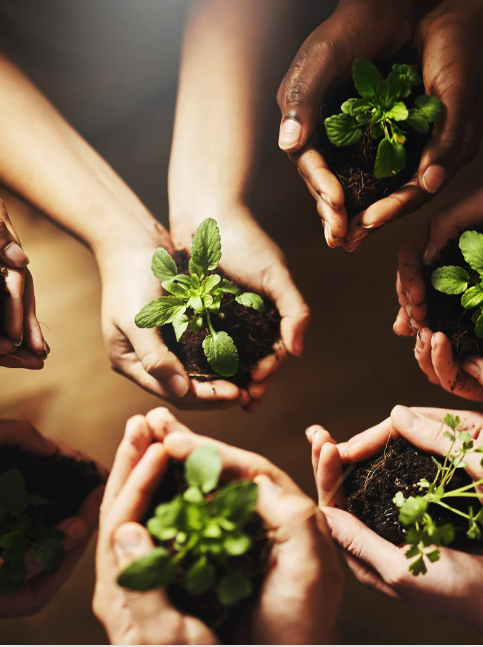Exploring the World of Sustainable Coffee Brands
In recent years, the coffee industry has seen a significant shift towards sustainability, as consumers become more eco-conscious and demand transparency in the products they consume. As we step into 2025, the focus on sustainable coffee brands is more prominent than ever. These brands are not only providing delicious coffee but are also ensuring that their practices are eco-friendly, emphasizing sustainability and ethical coffee production. This article will guide you through some of the top sustainable coffee brands, offering insights into how they are making a difference in the industry.
Sustainable coffee brands are committed to reducing their carbon footprint and promoting fair trade practices. They prioritize sourcing beans from farms that implement environmentally friendly farming techniques. This not only supports local communities but also ensures the preservation of biodiversity. As coffee lovers, choosing these brands means contributing to a more sustainable future.
The rise of sustainable coffee brands is a reflection of the growing demand for ethical coffee. Consumers are increasingly aware of the environmental and social impact of their purchases. By choosing sustainable options, they are making a conscious effort to support companies that align with their values. This growing trend highlights the importance of sustainability in the coffee industry.
This article aims to provide you with an in-depth understanding of what makes these coffee brands sustainable. We will delve into their practices, certifications, and the impact they have on the environment and local communities. By the end of this article, you’ll be equipped with the knowledge to make informed decisions when purchasing your next bag of coffee.
Join us as we explore the world of sustainable coffee brands and discover how you can enjoy your favorite brew while making a positive impact on the planet.
The Importance of Eco-Friendly Practices in Coffee Production
Eco-friendly practices are at the core of sustainable coffee brands. These practices include minimizing waste, reducing water usage, and using organic farming methods. By implementing such methods, coffee producers can significantly reduce their environmental impact. Sustainable coffee brands are leading the way in adopting these practices, setting a standard for the industry to follow.
Organic farming is a key component of eco-friendly coffee production. It involves avoiding synthetic fertilizers and pesticides, which can harm the environment. Instead, sustainable coffee brands focus on natural fertilizers and pest control methods. This not only results in healthier coffee plants but also preserves the surrounding ecosystem. By choosing organic coffee, consumers support farming practices that are better for the planet.
Fair Trade and Ethical Coffee: Supporting Communities
Fair trade is a crucial aspect of sustainable coffee brands. It ensures that farmers receive fair wages and work in safe conditions. By supporting fair trade coffee, consumers contribute to improving the livelihoods of coffee farmers and their communities. Ethical coffee production goes beyond fair wages; it includes education and healthcare support, empowering farmers to build better futures.
Sustainable coffee brands prioritize transparency in their supply chains. They work directly with farmers, cutting out middlemen, and ensuring that profits go directly to those who grow the beans. This direct trade model not only benefits farmers but also allows brands to maintain high-quality standards. As consumers, choosing fair trade and ethically sourced coffee means supporting brands that value human rights and community development.
Certifications That Matter: Organic, Rainforest Alliance, and More
Certifications play a vital role in identifying sustainable coffee brands. They provide assurance that the coffee meets specific environmental and social standards. Some of the most recognized certifications include Organic, Rainforest Alliance, and Fair Trade. These labels help consumers make informed choices and support brands that are committed to sustainability.
The Organic certification ensures that the coffee is grown without synthetic chemicals, preserving soil and water quality. Rainforest Alliance certification focuses on biodiversity conservation and improving livelihoods. By choosing certified coffee, consumers can trust that their purchase supports sustainable practices. These certifications are not just labels; they represent a commitment to a better planet.

Embracing Sustainable Coffee Brands for a Better Tomorrow
As we look towards 2024 and beyond, the importance of sustainable coffee brands cannot be overstated. By choosing these brands, consumers are making a conscious decision to support practices that are better for the planet and its people. Sustainable coffee brands are leading the way in eco-friendly, ethical, and fair trade practices, setting a standard for the industry.
By embracing sustainable coffee brands, consumers can enjoy their favorite beverage while contributing to a more sustainable future. These brands are not just about great-tasting coffee; they represent a commitment to environmental stewardship and social responsibility. As the demand for sustainable products continues to grow, the coffee industry will undoubtedly continue to evolve, offering even more eco-friendly and ethically produced options.
In conclusion, the choice is clear. By supporting sustainable coffee brands, we can all play a part in creating a better tomorrow. Whether you’re a coffee connoisseur or a casual drinker, there’s a sustainable option out there for you. Let’s raise our cups to a future where coffee is not only delicious but also sustainable.
EcoffeeFinder.com may earn a small commission from affiliate links, helping us provide trusted recommendations at no extra cost to you.
Top 5 Sustainable Coffee Brands for 2025
- Counter Culture Coffee
Known for its transparency and commitment to sustainability, Counter Culture partners directly with farmers to ensure fair practices and environmental stewardship. - Intelligentsia Coffee
Intelligentsia is a pioneer in direct trade and focuses on maintaining sustainable relationships with coffee farmers, ensuring fair wages and high-quality, ethically sourced beans. - Café Direct
This UK-based brand is Fairtrade and B-Corp certified, reinvesting profits back into coffee-growing communities to support sustainable practices and improve livelihoods. - Allegro Coffee
Sourced from Rainforest Alliance Certified farms, Allegro Coffee focuses on protecting biodiversity, fair labor practices, and reducing its environmental footprint in every step of production. - Bird Friendly Coffee by Smithsonian
Certified by the Smithsonian Migratory Bird Center, Bird Friendly Coffee focuses on shade-grown methods that preserve habitats for migratory birds while promoting biodiversity and organic practices.
FAQ: Sustainable Coffee Brands for a Better Future
1. What makes a coffee brand sustainable?
A sustainable coffee brand typically emphasizes ethical sourcing, fair wages for farmers, and environmental practices such as organic growing, water conservation, and biodiversity protection. Sustainable brands often carry certifications like Fair Trade, Rainforest Alliance, or Bird Friendly to verify their commitment.
2. Why is shade-grown coffee important for sustainability?
Shade-grown coffee is grown under the canopy of native trees, preserving the natural ecosystem. This method promotes biodiversity by providing habitats for wildlife, reducing the need for pesticides, and supporting soil health, making it an eco-friendly alternative to sun-grown coffee.
3. What certifications should I look for in sustainable coffee?
Look for certifications such as Fair Trade, which ensures fair wages and ethical labor practices; Rainforest Alliance, which promotes environmental and social sustainability; and Smithsonian Bird Friendly, which verifies shade-grown methods that protect bird habitats. USDA Organic is another certification indicating sustainable, chemical-free farming practices.
4. How does direct trade benefit coffee farmers?
Direct trade establishes a direct relationship between coffee brands and farmers, ensuring fair compensation without intermediaries. This approach allows farmers to earn higher wages, improves transparency, and supports better working conditions. It also enables brands to guarantee quality and traceability for consumers.
5. Are there sustainable options for single-serve coffee pods?
Yes, several brands now offer sustainable single-serve options. Look for compostable or recyclable coffee pods, such as those from brands like Halo Coffee and SF Bay Coffee. Some companies also offer reusable pods for popular machines like Keurig and Nespresso, reducing waste and environmental impact.

